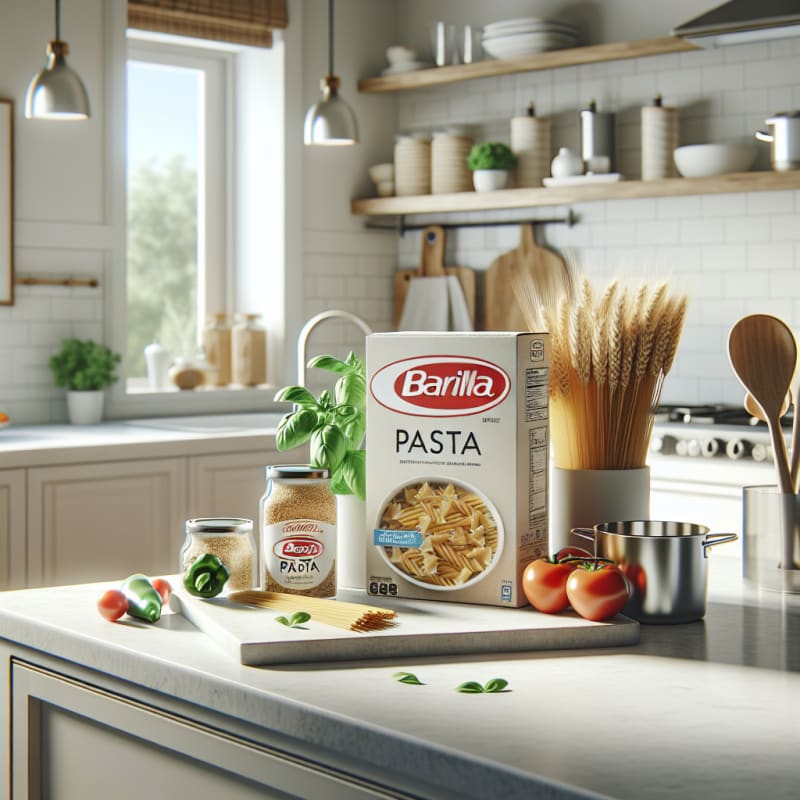Is Barilla Pasta Halal Or Kosher? Ingredient Insights, Labeling Laws, and Food Scan Genius
Understanding the religious dietary status of Barilla pasta helps consumers make informed choices, whether for Halal, Kosher, Jain, or other food sensitivities. This article explores the ingredients, certification, and global regulations, and introduces tools like Food Scan Genius to simplify your shopping experience.
Introduction: Why Ingredient Awareness Matters
As global food markets expand, consumers are increasingly conscious of what goes into their food. Religious dietary laws—Halal, Kosher, Jain, and others—require careful attention to ingredients and processing methods. For millions, pasta is a staple, and brands like Barilla are household names. But is Barilla pasta Halal or Kosher? Understanding this question is crucial for those who follow religious diets, have food sensitivities, or simply want transparency in what they eat.
Barilla Pasta: Ingredients and Manufacturing Overview
Barilla, founded in Parma, Italy, is one of the world’s largest pasta manufacturers. Their classic dry pasta typically contains:
- Durum wheat semolina
- Water
According to the FDA and EFSA standards, these ingredients are considered vegetarian and vegan, with no animal-derived additives in the basic pasta lines.1
| Ingredient | Source | Halal Status | Kosher Status |
|---|---|---|---|
| Durum Wheat Semolina | Plant | Halal | Kosher |
| Water | Plant | Halal | Kosher |
Note: Specialty Barilla products (e.g., filled pasta, sauces) may contain eggs, cheese, or other ingredients requiring further scrutiny.
Is Barilla Pasta Halal?
Halal Certification and Ingredient Analysis
Halal dietary laws, as outlined by Islamic authorities, prohibit certain animal-derived ingredients and require specific processing standards. For pasta, the key concerns are:
- Presence of animal-derived enzymes or additives
- Cross-contamination during manufacturing
- Certification by recognized Halal authorities
Barilla’s classic dry pasta contains only durum wheat semolina and water, which are inherently Halal. However, not all Barilla products are certified Halal. In the U.S., Barilla’s packaging does not consistently display Halal certification. In contrast, some EU countries—such as France and Germany—require clearer labeling, and select Barilla products may carry Halal marks.2
For consumers in regions with strict Halal labeling laws, always check for certification on the package or consult the manufacturer’s website.
Halal Status Table: US vs EU Barilla Pasta
| Region | Halal Certification Displayed? | Regulatory Authority |
|---|---|---|
| United States | Rarely | FDA |
| France | Sometimes | EFSA, Local Halal Bodies |
| Germany | Sometimes | EFSA, Local Halal Bodies |
| Italy | Occasionally | EFSA, Local Halal Bodies |
Key Takeaway: While the ingredients are Halal, certification and labeling vary by country. Always verify at point of purchase.
Is Barilla Pasta Kosher?
Kosher Certification and Ingredient Analysis
Kosher dietary laws, governed by Jewish authorities, require food to be prepared according to specific rules. For pasta, the main considerations are:
- Use of Kosher-certified ingredients
- Manufacturing equipment free from non-Kosher contamination
- Certification by recognized Kosher agencies (e.g., OU, Kof-K)
Barilla’s classic pasta lines are often Kosher certified in the United States, with the OU (Orthodox Union) symbol visible on many packages. In Europe, Kosher certification is less common, but some products are certified for export.3
Kosher Status Table: US vs EU Barilla Pasta
| Region | Kosher Certification Displayed? | Regulatory Authority |
|---|---|---|
| United States | Often | FDA, OU |
| France | Rarely | EFSA, Local Kosher Bodies |
| Germany | Rarely | EFSA, Local Kosher Bodies |
| Italy | Occasionally | EFSA, Local Kosher Bodies |
Key Takeaway: In the U.S., Barilla pasta is usually Kosher certified. In Europe, certification varies; check packaging or contact Barilla for details.
Jain, Vegetarian, and Vegan Considerations
For Jain, vegetarian, and vegan consumers, ingredient purity is paramount. Barilla’s classic dry pasta is free from animal products, making it suitable for these diets. However, filled pastas (e.g., tortellini) may contain eggs or cheese, which are not Jain-friendly. Always review the ingredient list and certification marks.
- Jain-friendly: Classic dry pasta only
- Vegetarian/Vegan: Most Barilla dry pasta lines
- Non-Jain: Filled pasta, sauces with onion/garlic
Global Labeling Laws: US vs EU
Labeling laws differ significantly between the United States and the European Union:
- United States (FDA): Requires ingredient disclosure but does not mandate religious certification labeling.
- European Union (EFSA): Enforces stricter ingredient transparency and, in some countries, Halal/Kosher labeling for imported foods.4
Consumers in the EU may see clearer religious certification marks, while U.S. shoppers should rely on ingredient lists and third-party certifications.
Recent News: Labeling Trends
- NY Times: Halal Food Labeling Faces Scrutiny in Europe
- Food Navigator: Kosher and Halal Foods Increasingly Demanded in Europe
- Reuters: Halal and Kosher Foods See Global Growth
How Food Scan Genius Helps Consumers
Checking every ingredient and certification can be overwhelming. Food Scan Genius is an innovative app designed to simplify this process for people with food sensitivities, religious dietary needs, or ingredient concerns.
- Scan any product barcode to instantly see Halal, Kosher, Jain, vegetarian, and vegan status
- Geo-aware labeling: Shows certification status based on your country’s laws
- User reviews and alerts for cross-contamination risks
“I use Food Scan Genius every time I shop for pasta. It tells me instantly if Barilla is Halal or Kosher in my country. It’s a game-changer for my family’s dietary needs!”
— Fatima S., Chicago
Download Food Scan Genius today at scangeni.us to make ingredient checks effortless.
Q&A: Is Barilla Pasta Halal or Kosher? (Featured Snippet Format)
Q: Is Barilla classic dry pasta Halal?
A: Yes, the ingredients are Halal. However, not all Barilla products are certified Halal. Check for certification on packaging or use Food Scan Genius for confirmation.
Q: Is Barilla classic dry pasta Kosher?
A: In the U.S., most Barilla dry pasta is Kosher certified and displays the OU symbol. In Europe, certification varies; always check the package.
Q: Are all Barilla products suitable for Jain, vegetarian, or vegan diets?
A: Classic dry pasta is suitable for Jain, vegetarian, and vegan diets. Filled pasta and sauces may contain animal products or root vegetables; check the label.
Q: How can I quickly check if a Barilla product meets my dietary needs?
A: Use the Food Scan Genius app to scan the barcode and get instant, geo-specific dietary information.
Conclusion: Ingredient Awareness and Smart Shopping
Understanding whether Barilla pasta is Halal or Kosher depends on both the ingredients and the certification status, which varies by region. Classic dry Barilla pasta is generally suitable for Halal, Kosher, Jain, vegetarian, and vegan diets, but always check for certification and ingredient changes in specialty products.
As food labeling laws evolve and consumer demand for transparency grows, tools like Food Scan Genius empower shoppers to make informed choices—quickly and confidently. By staying aware and leveraging technology, you can ensure every meal aligns with your values and dietary needs.





